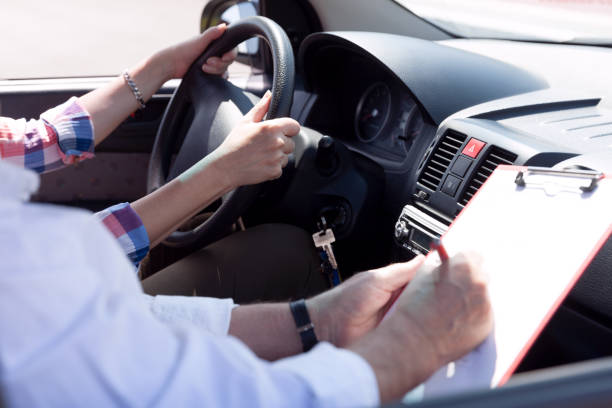How many hours/lessons of Drivers Ed Courses should a beginner take to learn how to drive? For age 18+ in Illinois
Driving is a crucial skill for adults, especially in Illinois, where having a driver’s license opens up various opportunities for mobility and independence. But how many hours or lessons of Driver’s Ed Courses should a beginner consider to learn how to drive effectively?
Importance of Driver’s Ed Courses
Driver’s education courses play a vital role in preparing new drivers for the responsibilities and challenges of the road. These courses cover essential topics like traffic laws, road signs, defensive driving techniques, and vehicle handling skills.
Understanding the Illinois Driver’s Ed Program
Eligibility Criteria
Before enrolling in a Driver’s Ed course in Illinois, individuals must meet certain eligibility requirements. Typically, learners should be at least 15 years old to enroll.
Course Structure
Illinois Driver’s Ed programs consist of classroom instruction, behind-the-wheel training, and sometimes simulated driving experiences.
Curriculum Overview
The curriculum includes topics such as traffic laws, safe driving practices, alcohol and drug awareness, and defensive driving strategies.
Recommended Hours/Lessons for Beginners
Factors to Consider
The number of hours or lessons needed for a beginner can vary depending on several factors, including:
- Previous driving experience
- Comfort level behind the wheel
- Ability to grasp driving concepts
- Individual learning pace
Minimum Requirement
In Illinois, the minimum requirement for Driver’s Ed is typically 30 hours of classroom instruction and 6 hours of behind-the-wheel training.
Optimal Duration
While the minimum requirement provides a basic foundation, many experts recommend additional hours of practice to build confidence and proficiency. Beginners should consider taking around 50 to 100 hours of supervised driving practice to feel comfortable on the road independently.
Benefits of Taking Sufficient Hours/Lessons
Taking an adequate number of Driver’s Ed hours or lessons offers several benefits, including:
- Increased confidence and skill behind the wheel
- Better understanding of traffic laws and safety regulations
- Enhanced ability to anticipate and react to potential hazards
- Lower risk of accidents and traffic violations
Tips for Maximizing Learning in Driver’s Ed Courses
To make the most of Driver’s Ed courses, learners can follow these tips:
- Practice driving outside of class with a licensed adult
- Stay consistent with lessons and review materials regularly
- Ask questions and seek guidance from instructors
- Stay patient and focused on gradual improvement
Conclusion
In conclusion, the number of 6 hour online driving course or lessons of Driver’s Ed courses a beginner should take in Illinois depends on various factors, including individual skills and learning pace. While the minimum requirement provides a foundation, additional practice can significantly enhance a new driver’s confidence and competence on the road.
FAQs
- How long does it take to complete Driver’s Ed in Illinois?
- The duration varies, but typically it includes 30 hours of classroom instruction and 6 hours of behind-the-wheel training.
- Can I take Driver’s Ed online in Illinois?
- Yes, Illinois offers online Driver’s Ed courses approved by the Secretary of State.
- Is Driver’s Ed mandatory in Illinois?
- Yes, individuals under 18 must complete a Driver’s Ed course to obtain a driver’s license.
- Do I need a learner’s permit before starting Driver’s Ed in Illinois?
- Yes, learners must obtain a learner’s permit before enrolling in a Driver’s Ed course.
- How long is a Driver’s Ed certificate valid in Illinois?
- The completion certificate is valid for two years from the issue date.











